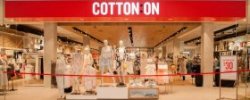In the ongoing United states Apparel saga, two financial investment funds presented a proposition fleetingly before New Year’s Day to purchase the la attire maker regarding personal bankruptcy.
The proposition, outlined in U.S. Bankruptcy documents filed Jan. 7 by United states Apparel president Dov Charney, provides increased exchangeability and capitalization when it comes to company, including providing American Apparel $30 million in money once the deal closes, another $90 million in an equity cushion and an anticipated $50 million loan guaranteed by collateral.
Total exchangeability is calculated to-be $170 million or higher once the package is completed rather than the $80 million in present intend to simply take American Apparel regarding bankruptcy.
The 2 investment resources, directed by Charney on opportunity, are not named in court documents simply because they submitted their particular suggestion directly to United states Apparel after Charney announced during the early December which he had involved Cardinal Advisors, a Los Angeles–based economic agent, to explore strategic options.
“American Apparel evaluates all estimates consistently, ” said an American Apparel representative. “The company stays focused on pursuing the conclusion of their economic restructuring following its planned personal bankruptcy judge hearing after this month.”
Whenever American Apparel submitted for section 11 personal bankruptcy security on Oct. 5, the company currently had a pre-packaged business plan in place in which the secured loan providers would transform $200 million in bonds into equity in the reorganized business. The secured loan providers have previously offered $90 million in debtor-in-possession financing also $70 million in brand-new liquidity.
The pre-packaged organization plan would reduce United states Apparel’s debt to $120 million from $311 million, and its yearly interest expenses would fall by $24 million.
One of the participating secured lenders inside pre-packaged suggestion are Standard General, Monarch alternate Capital and Goldman Sachs resource control. Collectively, they represent 95 percent regarding the retailer’s guaranteed lenders.









